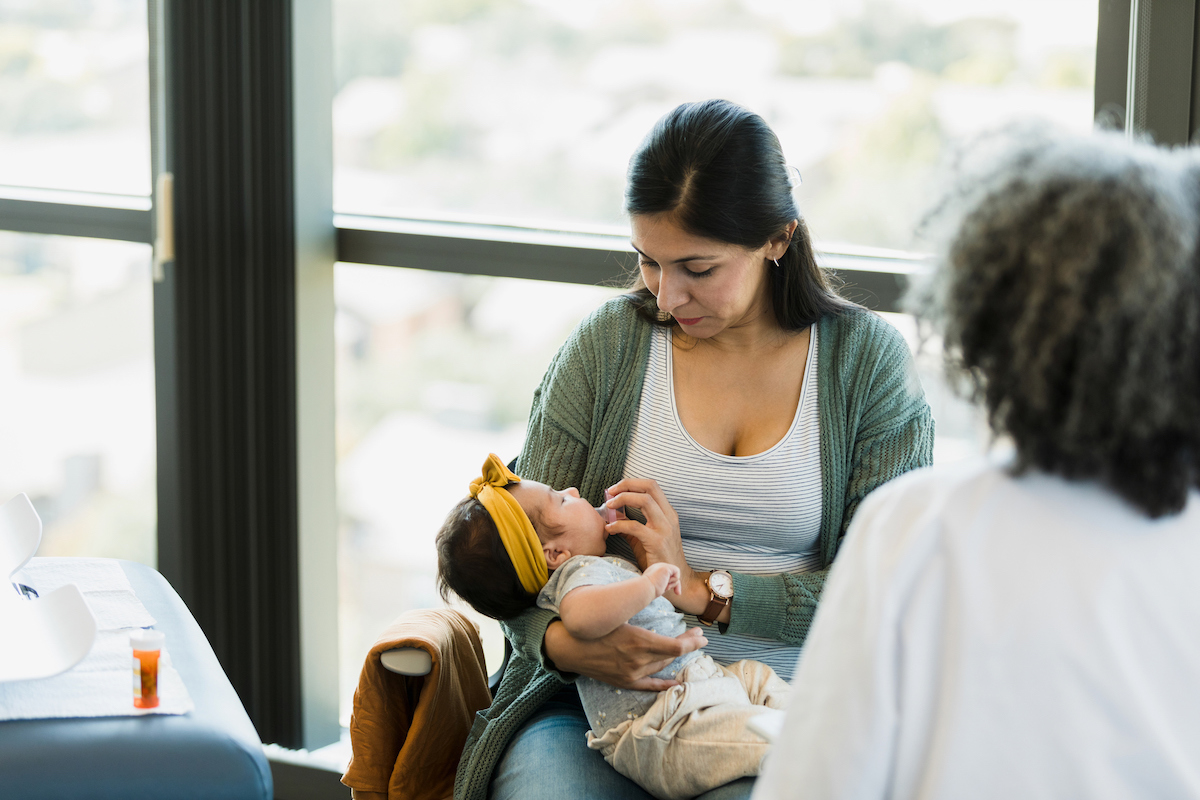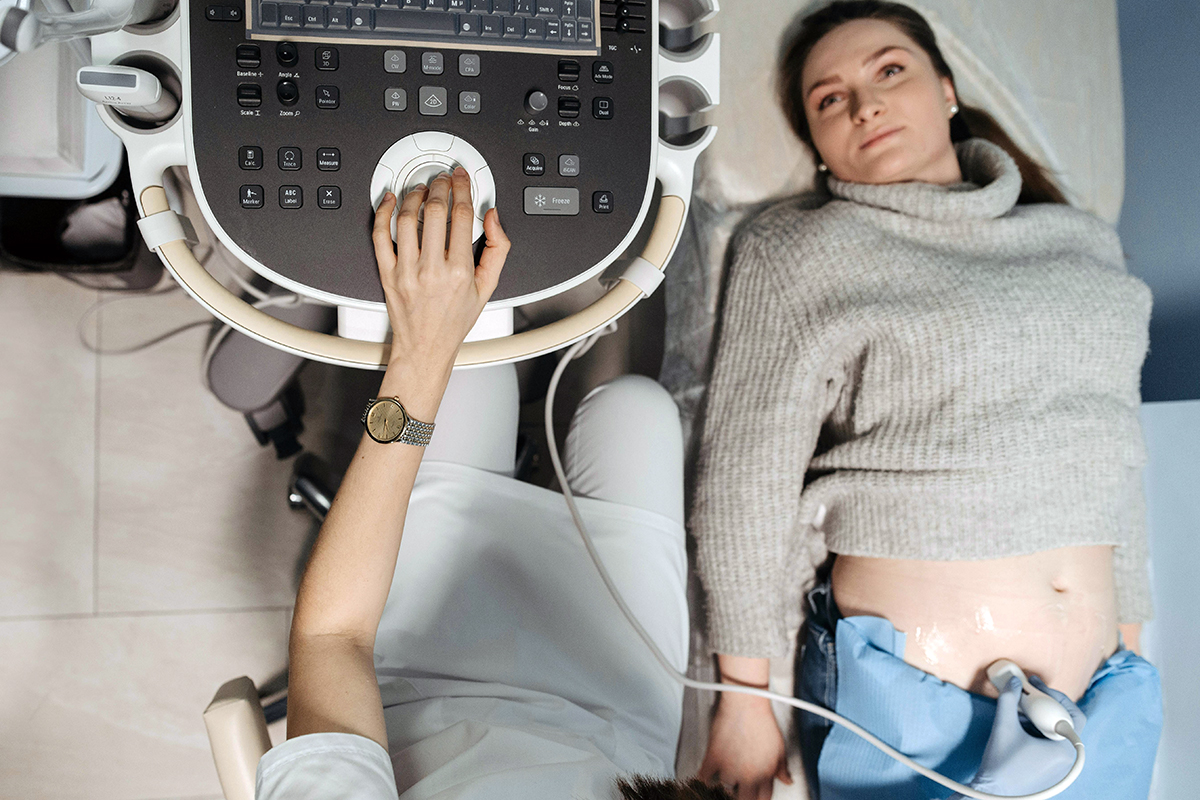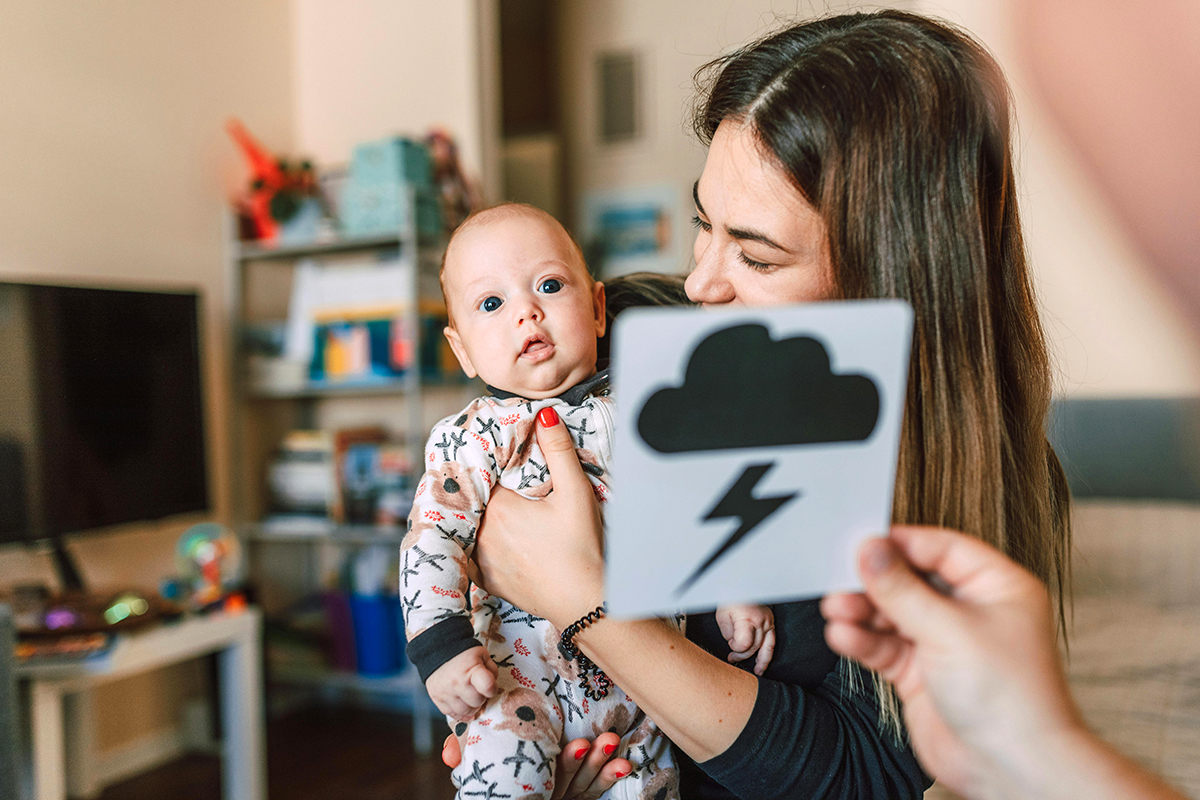My first child was born over 14 years ago. Many things have changed in my life since then, but one very salient one is my ability to focus on a single thing at a time. That ability has completely disappeared. This has both pluses and minuses. On the minus side, in the middle of a lecture, my brain will sometimes decide I need to think about whether we remembered to schedule dentist appointments. On the plus side, I’m a much faster task switcher — if my kids interrupt my writing to ask where their water bottle is, it is no problem to get back into it once said water bottle is found. I haven’t lost focus, because I didn’t have it in the first place.
This has been my post-pregnancy, post-childbirth legacy, or at least it feels that way. From other people who have given birth, I hear similar, if not identical, things. Stories of “pregnancy brain,” ongoing brain fog, but also sometimes an increase in speed — fewer hours, but more work per hour. This is all just anecdotal, though, just stories. But what does the data say?
So for my fellow task switchers, here we go: facts about how pregnancy and childbirth changes the brain, according to science. (Shout-out to this review article for a great overview; worth a read if you want to dive into the details.) Much of this research is pretty new, and it’s ongoing. We don’t necessarily have answers yet about why all of these things happen, but it’s fascinating nonetheless.

Pregnancy makes the brain smaller (for a while)
Based on MRI data, the brain appears to shrink (by about 5%) during pregnancy. Brain size is at its lowest at delivery and then recovers by about six months postpartum. It is not completely clear why this happens, or how. Some evidence suggests that it relates to brain pH, and additional work shows there may be a relationship with the development of maternal attachment — changes to the brain that enhance attachment may shrink other areas. Intriguingly, when you measure brain age, there seems to be a reversal between the first days postpartum and six weeks in. So as you are getting more and more exhausted, your brain is somehow getting magically younger. These measurements are based on brain scans, and in reality you will probably not feel your brain getting any younger.
Pregnancy reduces cognitive function and memory (especially toward the end)
A number of analyses have shown declines in cognitive functioning, memory, and executive function in pregnancy. These declines seem to start early but are largest in the third trimester. This would be consistent with the timing of brain size changes, although the data isn’t sufficient to directly link them.
There is some interesting variation here. For example, declines seem to be larger for women who are carrying a female fetus than a male fetus. And memory problems are larger for later pregnancies (it seems possible this is because of the demands of taking care of a toddler…).
It is less clear whether these effects persist postpartum, and some data suggests that for older mothers in particular, their executive function might be higher postpartum relative to the baseline.
Pregnancy enhances recognition of social stimuli
Meta-analysis evidence shows that pregnancy enhances performance on recognition tasks. Such tasks measure your ability to recognize something you’ve seen before — for example, to differentiate between a familiar and an unfamiliar face. These measurements are done in the lab, but in the real world, it might be an enhanced ability to remember that you’ve seen someone or something before.
Researchers hypothesize that this may be an important adaptation, since someone with a newborn may need to be more aware of strangers in their surroundings.
Long-term, pregnancy may enhance memory (especially in rats)
It’s always hard to study these issues, even in the short term, since there are other factors about having babies that are hard to adjust for. Most of the short-term research on this relies on brain scans and cognitive testing that is designed to control as much as possible for other factors. In the short term, you can also look at how individuals compare to their pre-pregnancy selves. When we turn to looking at the long-term impacts of pregnancy on the brain, it is even harder, since there are many other ways that parenthood might change the brain.
Comparing cognitive performance between women who have had and have not had children will rapidly run into the problem that a lot of other things about their lives are different. It’s not clear you’d want to attribute any observed differences to pregnancy. When researchers do these comparisons, with their many caveats, they find mixed evidence — some possible cognitive gains, other ways in which cognition is worse.
This is much easier to study in rats, since they are more controlled. And in rats, having had babies improves long-term spatial learning and memory (measured generally by their performance in mazes). It’s unclear, as always with animal studies, whether this translates to people and how much. Is having had children the reason I am a total wizard at the corn maze? Unclear.
Fetal cells live in your brain (and elsewhere) forever
Final fun fact: During pregnancy, fetal cells circulate in maternal tissue, and they remain after pregnancy. This is called “microchimerism,” and it is thought to have possible wide-ranging consequences on future pregnancies and long-term maternal health. This could include brain health — some work has even proposed a link with Alzheimer’s disease.
This area is very new, and any work here has been speculative. For the moment, we should refrain from blaming our children’s fetal cells for our brain fog.
Closing thoughts
It’s tempting to think of pregnancy and childbirth as limited to a particular portion of our bodies — the uterus, fallopian tubes, vagina — but it’s really a whole-body experience. That includes the brain, but also basically everything else (the placenta is especially cool; check out this podcast episode with Dr. Gillian Goddard).
Of course, it doesn’t stop at childbirth. Being a mother or a parent, no matter how you get there, impacts us in all kinds of ways. For more on that, I’d highly recommend the book Mom Genes, by Abigail Tucker (and my conversation with Abigail from around the time when that book came out).
Community Guidelines
















Log in
Opie here (short for ‘only parent’). I had a really interesting response to pregnancy that I have not heard replicated anywhere and I’m wondering if there is any further science on it. During pregnancy, my entire relationship with food changed. Not in the typical ways you associate with pregnancy – food binging, constant nausea, deep cravings. Basically, my relationship to food became seamless. What has always been hard for me: giving in to sweet cravings, not being able to stop when I was hungry, and having trouble with the immediate ‘see it and want to eat it’ that I have experienced in my life, in contrast, was the opposite when pregnant. Although I was mildly nauseous during my first trimester, but the rest of my pregnancy, I had few cravings for sweets, stopped when I was full (way before I would normally stop), didn’t have brain hunger, and ultimately, felt like I was fueling my body, and allowing myself things when I wanted, but not focusing on them. When my baby was born, I had lost 25 pounds from when I just got pregnant. There was never any worry about her – my ob said that the baby will take what it needs and she was on the smaller end 6lb 2 oz (what I was when I was born) but well within the average range.
The freedom that I experienced around food while pregnant was an eye opener and felt amazing. It hasn’t stayed – I’ve gained most of the weight back over the last 16 months, but now I feel like I’m chasing that feeling of freedom. Although to be clear, I never want to be pregnant again. I’m wondering if anyone has had any similar body-brain responses to this.
I also experienced wanting nutrient dense foods and feeling somewhat repulsed by “junk” foods regardless of salt or sweet. It felt different than the cravings people talk about (which I also experienced a handful of times). Also for 2 weeks post partum I was ravenous and basically eating plates of fruits and vegetables 24 hours a day whenever I had a hand free.
I recognize that most of these changes are based upon hormone production during pregnancy. However, as a surrogate parent I would be very interested to separate which changes are driven by internal hormone shifts vs those that happen once your baby is in your arms.